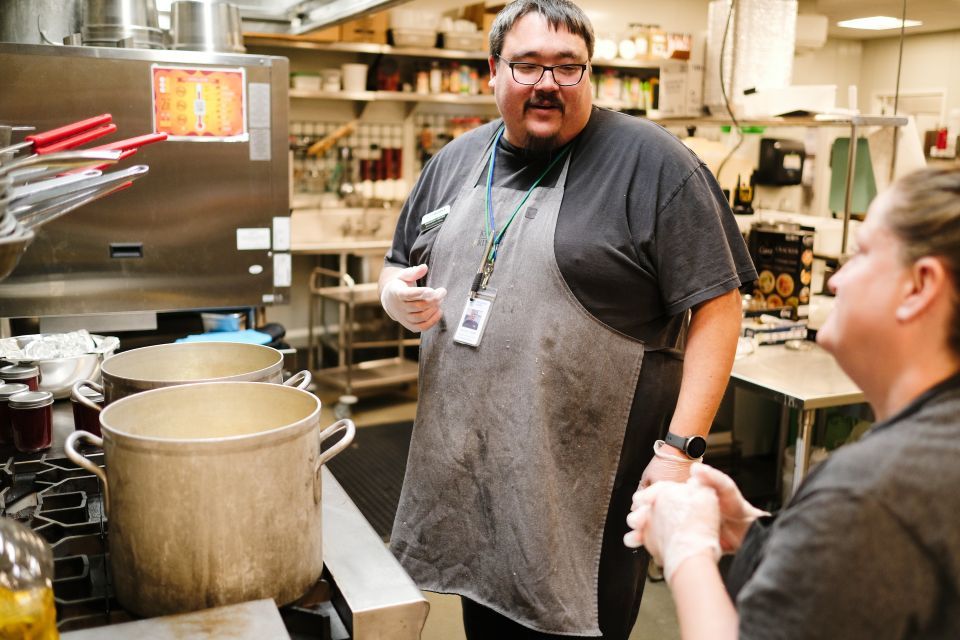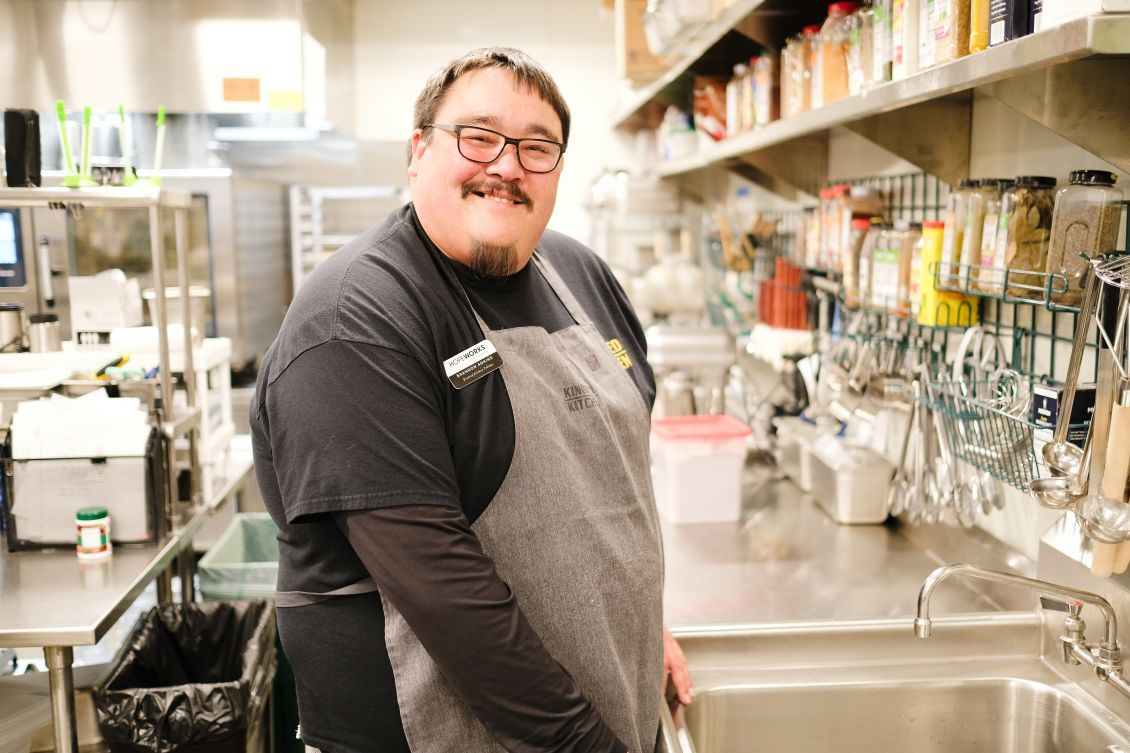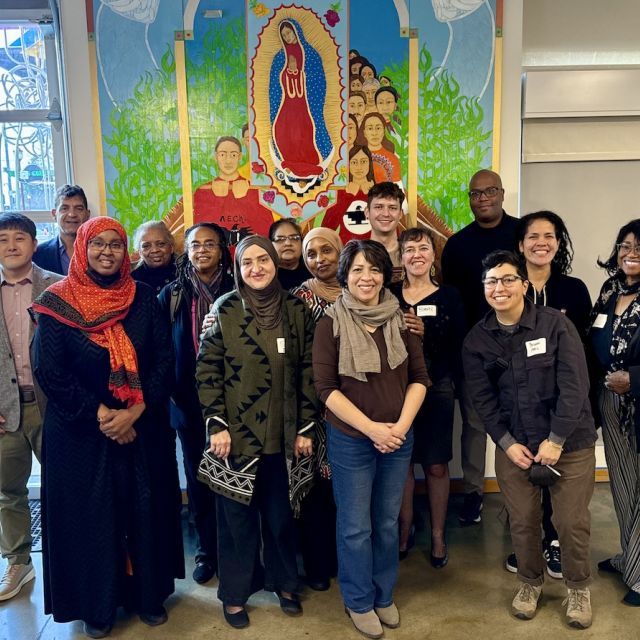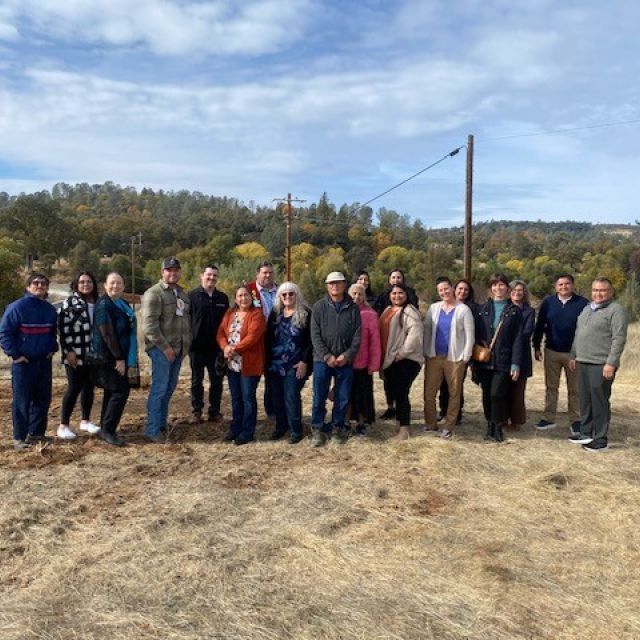Brandon Adkins teaches kitchen skills to people who want to turn their lives around. He realizes, however, that the food these people are learning to chop, prepare, and cook, is not the most important ingredient.
“Food is a tool,” said Brandon, who is culinary trainer at Kindred Kitchen, a job skills training program In Everett, Washington. “What’s most important is that these individuals gain self-esteem and the ability to know they are capable of changing their lives for the better.”
Brandon, 38, grew up in the nearby town of Mukilteo and has worked for the past 20 years in restaurants and food service for Boeing and other local large employers. He has also struggled with addiction and homelessness and understands the challenges that his trainees face at HopeWorks, the housing and jobs training organization where Kindred Kitchen is based.
“I’ve been in the exact same position as the demographic of the people who we serve here,” he said. “I’ve received a warm meal before. I’ve been outside and I know these struggles.”
Learning New Skills
In our annual Social Return on Investment Report we explore Brandon’s story – as well as those of several members of the community who have found support through HopeWorks. From Brandon and others connected to this organization, an important narrative emerges: anyone is a bad break or a tough choice away from losing everything, but it’s possible to turn your life around with the right help.
At Kindred Kitchen – one of several job training options at HopeWorks – trainees learn the technical skills of food preparation along with the soft skills of workplace success, such as problem solving and customer service. The job training programs are based at HopeWorks Station, which also includes housing.
“Affordable housing has always been our focus, but with HopeWorks Station we wanted to help our residents overcome the barriers of achieving financial prosperity – and that included educational and workforce training,” said Bobby Thompson, HopeWorks’ Chief Housing Officer.
Over multiple years, Enterprise – working in concert with our Pacific Northwest office – delivered over $26 million in impact investments and Section 4 capital to help make HopeWorks Station come to life.
Turning Point
Sober for the past four years, Brandon lives with his parents and 10-year-old daughter, Abigail. He knows from his own experience that it’s possible to recover and change, but he also understands it’s not easy.
Brandon describes himself as “just completely lost” during his late teens and 20s, even though he was able to continue working and cooking. He went through treatment several times, but each time he would sink back into addiction.
“Once I realized I was in the driver’s seat and could do this for myself, something clicked,” he said.
Brandon left his group of friends in the nearby town of Marysville one day and took a bus to Everett, where he checked into a motel on his own. “I chose to go into an impatient treatment program. I had to put in the legwork and call more than 10 different treatment centers until I found one that would take me. To me, it’s very important that people who are struggling with addiction know that they can’t do it alone.”
Once back in touch with his family, he was able to get the continued support that he needed – the kind of support that he knows many of his trainees don’t have. “I was grateful to have my family there,” he said. “I’m not willing to sacrifice that now.”

Tell, Show, Do
In his position at Kindred Kitchen, Brandon works with groups of four trainees over a period of three months to teach the basics of food service and the ability to trust they can learn new skills. And he sees big changes in trainees as they make their way through the Kindred Kitchen program. He follows the “tell, show, do method” with them and sees how their initial timidity gives way to confidence as they progress. “They learn that making a mistake is not always bad,” he said.
Brandon also shares with trainees that he’s been in their position before. “I know how scary the road can be.”


